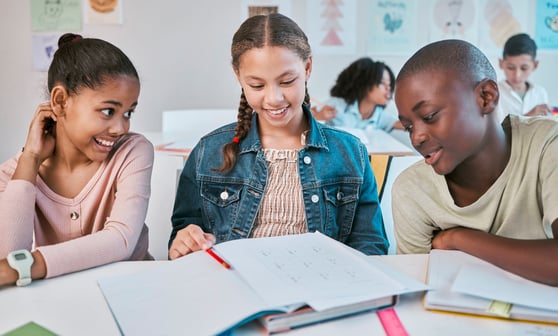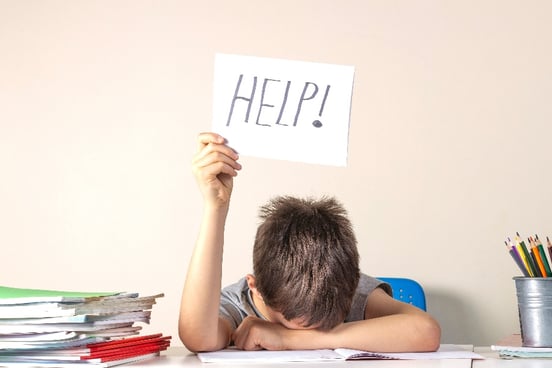
STEM Education Resources Teachers Actually Need in 2026
STEM brings together science, technology, engineering, and math in a connected way.
ALI Staff | Published July 21, 2023
Working together to accomplish shared goals — Isn’t this what any group project in school is all about?
Well, yes and no, since sometimes the working together part gets a little unbalanced.
Other times, goals are misinterpreted, and students end up disagreeing on what the outcome should be.
For these reasons, it’s best to go into the idea of group work with a clear understanding of just what kind of groups you want to have.
This is where cooperative learning groups can come in handy.

Cooperative learning is a great strategy that allows students to learn how to navigate working with others while learning the class material.
This type of learning happens through cooperative grouping. Being in a cooperative learning group can be a fun and interesting way for students to engage with science.
Some key benefits of using cooperative grouping in the classroom include:
This type of group strategy opens students up to learning science and building essential skills.
Introducing cooperative group activities into your classroom creates an environment that is ideal for building soft skills that can translate into success throughout a student’s life.
They can learn how to speak up, communicate, and collaborate. They’ll learn how to address conflict and, at the same time, understand how not to be the driving force that causes it.
This development occurs only when the activities have structure, complete with clear objectives and easy-to-understand goals.
The suitable materials and tools should also be readily available.
To create an effective cooperative learning group, it’s important to:
Cooperative grouping can also be more effective if activities lean into student interests or allow them to use past experiences to help shape their participation.
Incorporating science-in-the-real-world scenarios into cooperative group activities can increase engagement and help students identify with the problem or activity they are working through.
One of the great things about cooperative group activities is that there are no rules related to time-on-task. You can set up an activity that takes just a few minutes, solidifying objectives you’ve just covered.
You can also create something more involved, like having groups draw their own city and show where there are different types of energy. This type of elaborate project is also great because it enables students to use their creativity as well.
You also can control many of the moving parts of the group work for better outcomes.
You can ensure the criteria for success to go beyond just the science and define the behaviors you expect to see during group work. You can even assign roles for group members to encourage full participation.
A few ideas for roles include:
Strong cooperative group activities typically have a few standard criteria, regardless of discipline. They’re better if there’s more than one answer or more than one way to solve the problem the activity presents. This way, discussion can occur.
Cooperative grouping can be particularly beneficial for learning science because many science-in-the-real-world examples can allow for creative thinking with more than one answer. For instance, an activity about climate change can have students thinking about many different ways to help alleviate the issue.
Cooperative activities should also have opportunities for each member of the group to shine, whether that’s in the number of roles available or the structure of the activity itself. Everyone needs a chance to participate.
It’s also a good idea to factor in how you’ll monitor the groups during the activity. You’ll want to ensure students are getting the work done and doing so in a way that has everyone playing an active part.
When it comes to science-specific activities, focus on open-ended problem-solving so students can generate ideas together and compare different approaches to solving a problem while working with each other. Someone in the group may see a new perspective they hadn't considered before, while someone unclear about the concept may finally catch on.
Although this may have groups discussing science more than doing it, they’re still learning and engaging with the right subject matter. All you have to do is ask the right question and then set the parameters for how the group gets to their communal answer.
For activities like this, you may also want to bring in science occurring in the real world, so students aren’t being asked to memorize facts but to think about how science impacts a specific part of life. Allow the groups to discuss and reach a consensus that they’ll then present.
Cooperative learning doesn’t have to take up a large amount of class time to have a profound effect on students. It could just be something you do for five minutes every class period. You’ll still see results, and many students who may not have loved science in the past might develop more of a liking for the subject. This is because cooperative grouping helps up one’s comfort level with the subject.
Work like this also allows students to learn from each other, which can sometimes be quite powerful. They learn that looking to their peers for help can have a positive impact; they don’t always have to wait for their teacher to come over and check their work.
Cooperative learning also empowers students. By turning over a project’s objectives to the students directly, they’re suddenly responsible for resolving conflict within the group and assessing problem-solving techniques. They learn to talk it out with each other rather than argue or come to you as the tiebreaker. Cooperative grouping can help them deepen their understanding of science and learn valuable skills they can carry with them forever.
With the proper planning and structure, you can turn group work into something cooperative, benefiting students in ways that go beyond concept comprehension. You can make projects more engaging, bring in science, and ensure that students develop skills that will benefit them for years to come. It’s a great way to vary class time and make a positive impact.

STEM brings together science, technology, engineering, and math in a connected way.

Mathematics can be a challenging subject for many students, requiring schools to have effective strategies in place to...

The news headlines are daunting. Math scores are down. School districts are scrambling to turn things around. And...